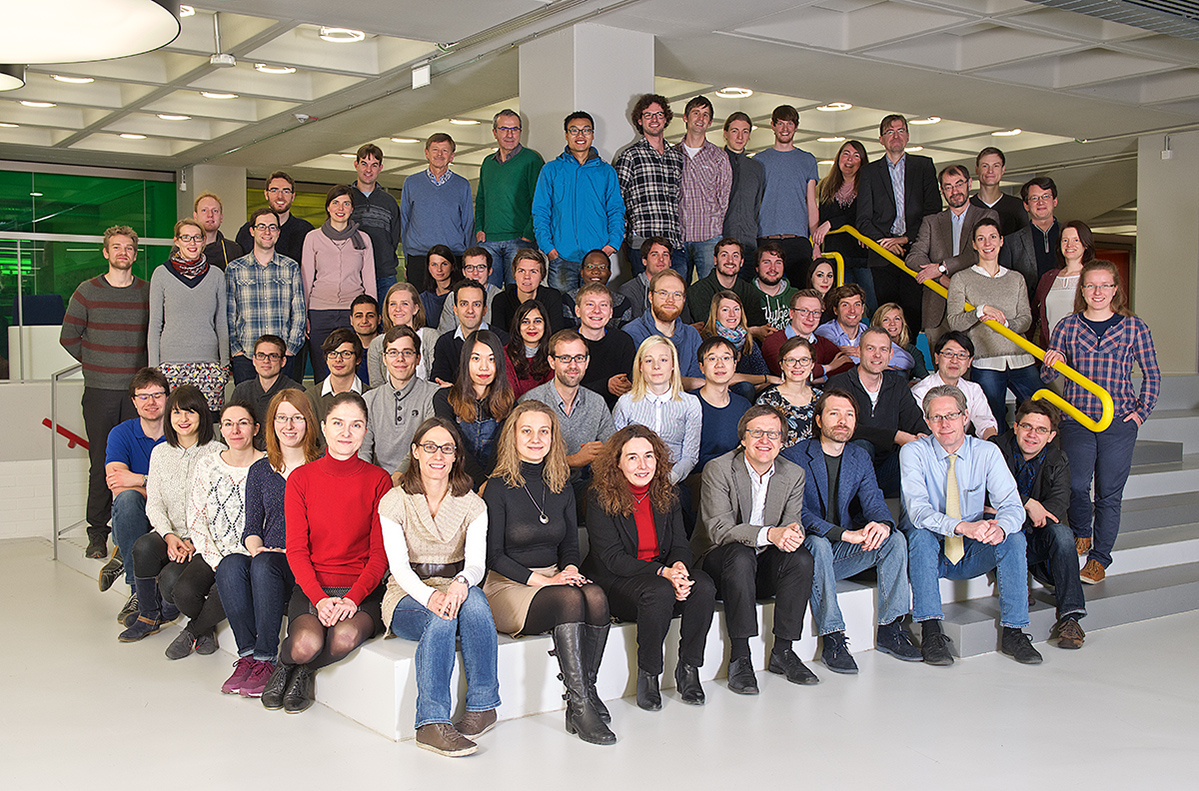
Interdisciplinary behavioural research
Many different sciences investigate human decision making. Different facets of decision making are in the focus and different tools are used. In the Graduate School of Decision Sciences we provide an interdisciplinary environment in which scientist with different approaches and tools inspire each other, learn from each other and collaborate with the common goal of a deeper understanding of human decision making . The three disciplines economics, political science and psychology constitute the main focus of the School and three complementary disciplines are also incorporated: computer science, sociology and statistics. The School is structured into four interdisciplinary research areas, between which various cross-connections exist:
Area (A) on “Behavioural Decision Making” explores the foundations of human decision processes.
Area (B) on “Intertemporal Choice and Markets” investigates applications of decision and behavioural research. It has a particular focus on decisions with a longer planning horizon, which are mostly relevant to applications in economics and finance.
Area (C) on “Political Decisions and Institutions” studies collective decisions, which are the keystone for research in political science and political economy.
Area (D) on “Information Processing and Statistical Analysis” supports the other three research areas with tools to generate and analyse data.
Research Oriented Training
Our Graduate School offers a training and research environment for doctoral students concerned with questions about decision making and its application to important social problems. The Graduate School’s interdisciplinary training programme, as well as its open and communicative academic environment, provides the ideal conditions for guiding doctoral students towards scientific excellence. Our doctoral students benefit from our connections to a wide variety of national and international network partners. They also receive targeted career preparation to facilitate their entry into assistant professorships and postdoctoral positions at leading international research institutions or into top positions in the private sector or the public service. The GSDS encourages research on gender and diversity related topics which meet the interests of several faculty members.
There are two routes of entry into the Graduate School. Applications are welcome from highly motivated Master’s graduates and pending graduates with an outstanding Master’s degree relevant to one of the disciplines or research areas of the Graduate School. Furthermore, Master’s students who have participated in our Graduate School Track, which is integrated into our Master’s Programmes in Economics, Mathematical Finance, Politics and Public Administration, Psychology, Political Economy and Quantitative Methods in Social Sciences, are optimally prepared for entry into the Graduate School.
Studying in an excellent environment
The University of Konstanz is one of the eleven Universities of Excellence in Germany. The University is a role model for the integration of research into teaching. It is strong in research funding and is a truly international university, maintaining relations with 200 universities worldwide. All University Departments contributing to the Graduate School belong to the premier departments of their kind in Germany and enjoy an outstanding reputation in teaching and research. The University’s first-rate infrastructure includes its award-winning, 24-hour open library, state-of-the-art computer facilities and the provision of German and other foreign language courses.
Constance is one of Germany’s choice destinations. Its unique setting on the shores of Lake Constance and the River Rhine, as well as its proximity to the Alps, Switzerland, Austria and France, make it the ideal location for study and leisure.
Apply to the Graduate School
If you believe that our Graduate School of Decision Sciences meets your academic aspirations, then please do not hesitate to apply. If you have any further questions, feel free to contact us.

Prof. Dr. Gerald Schneider
Coordinator of the Graduate School
